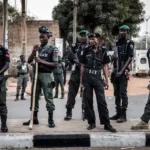The Rural Electrification Agency (REA) has commissioned a 40kWp solar hybrid mini-grid in Rafinzurfi community in Gwagwalada Area Council of the FCT.
The project was carried out through the Rural Electrification Fund (REF) which aims to provide clean, affordable and reliable electricity to underserved communities in Nigeria.
The Managing Director of REA, Abba Abubakar Aliyu, said the project would power over 138 households, a clinic, two schools, 16 commercial users and 11 productive users within Rafinzurfi.
Represented by the Executive Director of REF, Engr Doris Ubo, Aliyu said, “Electricity is much more than just a flick of a switch; it is the catalyst for development.
- ALGON moves to improve primary health care efficiency
- A plea for our future healers: Abduction of 20 medical students
“You know, a lot of funds have been invested in this project, so you cannot expect it to be free. What you should expect is a reasonable tariff that the community can afford, which will gradually help them grow their businesses. If you provide it for free, it means you want this project to collapse, because it will not be sustainable.
“As we mentioned earlier, the sustainability plan involves inaugurating a committee called the Rural Electrification Users Cooperative Society composed of indigenes from this community. They will be trained on how to handle minor maintenance.”
The Minister of State for the FCT, Dr Mariya Mahmoud, commended REA for its inclusive approach to rural electrification.
Represented by her Special Adviser on Town Planning, Michael Bawa, Dr Mariya said that the activation of the mini-grid in Rafinzurfi was part of a broader strategy by the federal government to ensure that no community was left behind in the pursuit of national development goals.
The project’s manager, Anayo Okemwa, said, “The new roofs you see around, for instance, all came up within the last two years due to the availability of power. This demonstrates the transformative impact of energy access – it has reversed rural-urban migration. Now, the youth are staying in the community instead of moving to Gwagwalada as they can now perform the same activities here; thanks to electricity.”

 Join Daily Trust WhatsApp Community For Quick Access To News and Happenings Around You.
Join Daily Trust WhatsApp Community For Quick Access To News and Happenings Around You.


